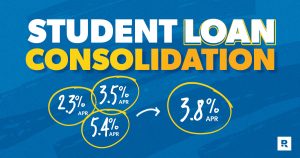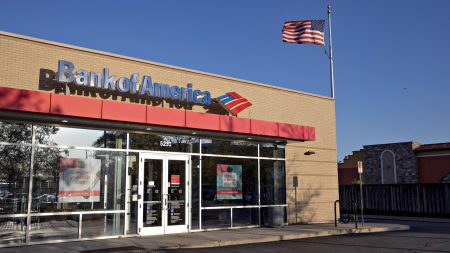PeopleImages/Getty Images
Key takeaways
- Homebuyer education courses teach you how to save for a down payment, shop for lenders and maintain your house.
- Lenders and state homebuyer assistance programs require first-time homeowners to take an education course.
- Costs for these classes range from free to $125, with some lenders crediting what you spend on a course to your closing costs.
You might be ready to stop paying rent, but are you fully prepared to buy a home? Between understanding how a mortgage works and budgeting to cover home expenses, the pathway to owning a house can have a steep learning curve. That’s where homebuyer education courses come in. Many state homebuyer assistance programs and some mortgage lenders require borrowers to take a homebuyer education course — especially if they’re a first-time homebuyer.
What is a homebuyer education course?
A homebuyer education course is an online or in-person class you can take to better understand what’s involved in finding, financing and owning a home. In many cases, a homebuyer education course isn’t optional. Your mortgage lender might require you to complete this course, or you might need to take it to qualify for down payment assistance or other housing financing programs run by a state housing authority (HFA).
“This class explains the homebuying process, what is needed from the borrower to be approved for a mortgage loan, the benefits of homeownership, the challenges of homeownership and mortgage and lending terms,” says Wil Hendrix-Griffin, senior vice president of Affordable Lending for PNC Bank in the Chicago area.
Sometimes, the course is offered as a pass/fail class, says Hendrix-Griffin, and the buyer usually receives a certificate upon completion. Other courses have a grading system, such as the homebuyer education class offered by Take Charge America, a Phoenix-based nonprofit credit counseling agency.
“In our course, attendees carefully review the content and their knowledge is periodically tested through a set of quizzes,” says Jeremy Wine, former manager of specialty counseling services and partnerships for the organization, which offers the class to buyers in all 50 states. “Those who receive a cumulative score of 70 percent or above will pass our course and receive a certificate of completion.”
What do you learn in a homebuyer education class?
A first-time homebuyer class aims to help you learn about the entire process of buying and owning a home to make sure you’re ready for the commitment.
You’ll learn about the different steps in the homebuying process, including how to:
- Make sure you’re ready for homeownership
- Save for a down payment and manage your finances
- Check your credit to make sure it’s sufficient to get a mortgage and improve your score if necessary
- Determine your budget for buying a property
- Find first-time and other homebuyer programs that can help you
- Compare different types of mortgages and lenders
- Choose the right lender
- Know what closing looks like
- Live in and maintain your new home
Each homebuyer education class is different, however, and depends on the organization offering it and the breadth of material it covers. There’s also a difference between attending a class in person versus taking one online.
“The best courses are in-person classes that allow for substantial interaction within the class and with the instructor,” says Tony Julianelle, CEO of Atlas Real Estate in Denver. “Ideally, the class should provide time for you to develop a household budget and work through various scenarios, such as how you might pay for a large repair if it were needed.”
Why you should take a first-time homebuyer education course
Buying a home is a huge step, and the process can be overwhelming. As you begin thinking about it, you’ll likely find yourself considering a lot of questions. For example, what is a fixed-rate mortgage versus an adjustable-rate mortgage?
A first-time homebuyer education course can help address some of these questions and give you the ins and outs of submitting an offer on a home and applying for a mortgage. In addition, a class might be a requirement for a more affordable mortgage, which could look like:
These benefits (as part of a first-time buyer loan program) can save you money on your mortgage and make homeownership less costly overall.
How to find homebuyer education courses
The U.S. Department of Housing and Urban Development is a great place to start, as it lists approved homeowner classes. You can also consult with your real estate agent for help. If you’re planning to apply for state-sponsored assistance, you should look at the state housing authority’s website for a list of approved lenders and ask a loan officer for help finding an approved course.
As you compare your options, you’ll find two main types of programs:
- On demand: Online homeowner classes allow you to access the source material and take any required tests when convenient. They also offer the same information quality as in-person classes.
- Local: Many Realtors and lenders offer first-time buyer certification classes. That said, if you’re looking to qualify for a grant or loan, you’ll need to make sure the class meets your lender’s requirements.
FAQ about homebuyer education courses
-
Many homebuyer education courses charge a small fee that you have to pay for out of pocket, and they can typically cost up to $125. Some classes that are offered free of charge might be funded by your lender, real estate agent, HUD or the organization offering the course. Fannie Mae also facilitates a free first-time homeownership course that meets the education requirement for most loan programs.
-
Many homebuyer education courses are four to eight hours long; the free Fannie Mae course takes about three to four hours. You can usually complete a course in one or two days, either online through a website or app or at a brick-and-mortar location like your real estate agent’s or lender’s office, says Hendrix-Griffin.
-
It’s best to complete a homebuyer education course as soon as you’re serious about looking for a home and well before closing on your mortgage. “It’s a best practice to complete this education as soon as you’re aware you’ll need it so that you’re able to find a class that works in a short timeframe,” says Julianelle. “Classes fill up quickly at most HUD-certified courses.”
Read the full article here












